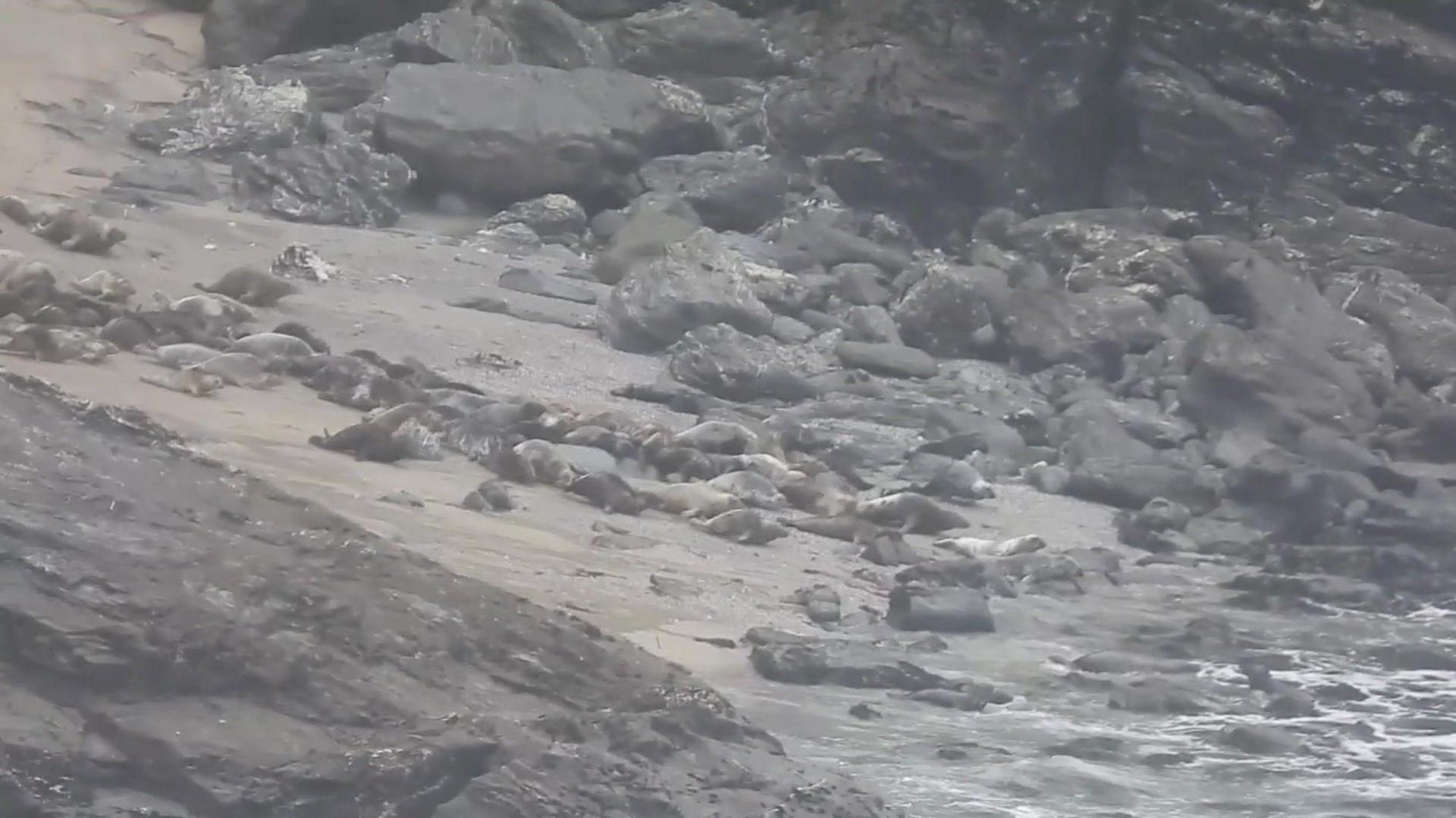Seal pup with GPS tag swam 150 miles to France
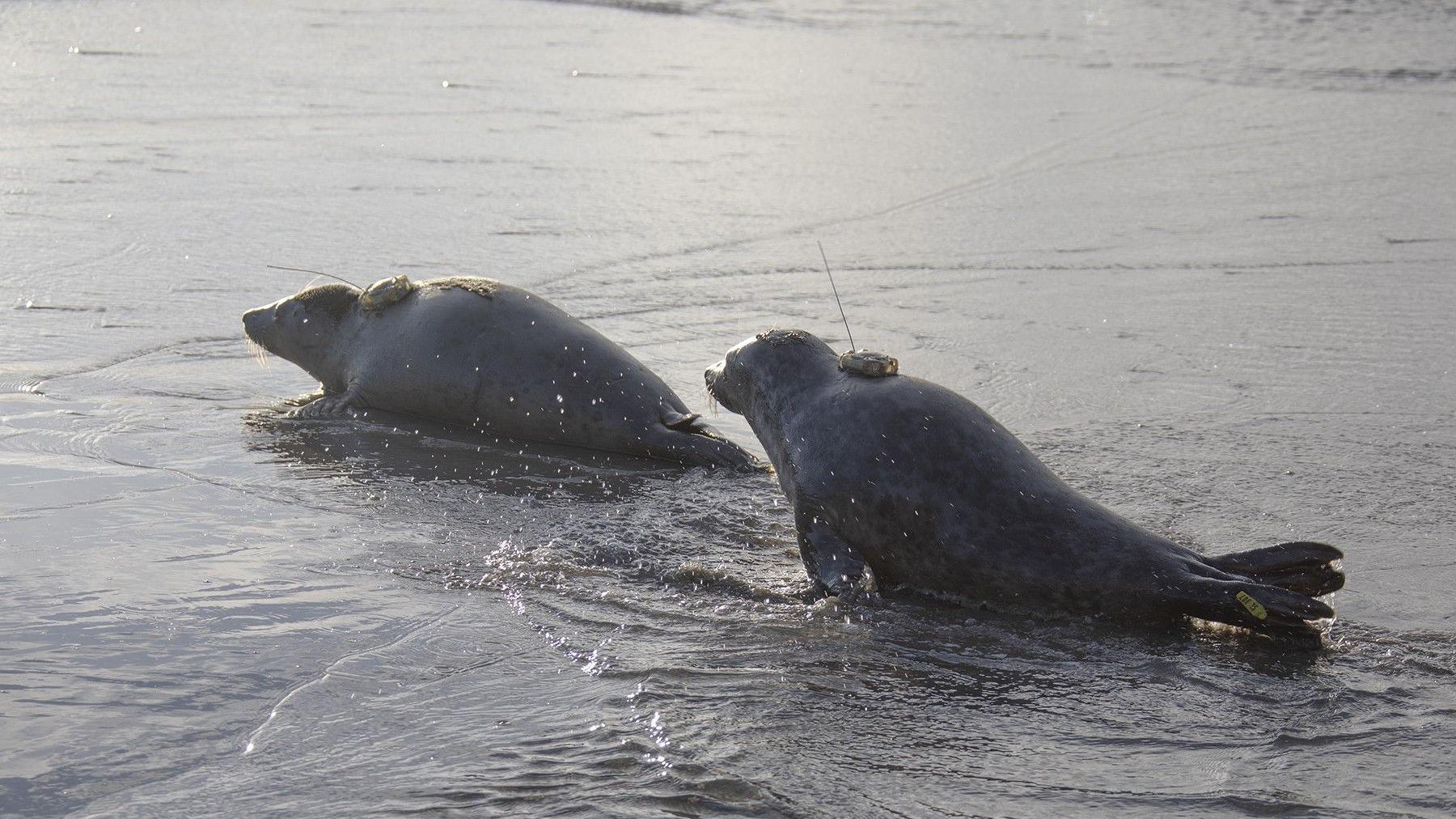
The seals were tracked going from Cornwall to as far as France and Ireland
- Published
A GPS tagging project has given researchers an insight into the movements of rehabilitated grey seal pups.
The trial study run by Dr Luis Huckstadt of the University of Exeter, in cooperation with the Cornish Seal Sanctuary, tracked the movements of 16 rehabilitated seal pups, which were released from the sanctuary in Gweek.
The first pup fitted with a tag, Maggot, made an unexpected journey to Brittany, travelling more than 150 miles (241km).
A second pup named Selkie, rescued from Jersey in January, was the first of the seals in the study to cross international waters by swimming up the River Somme in northern France.
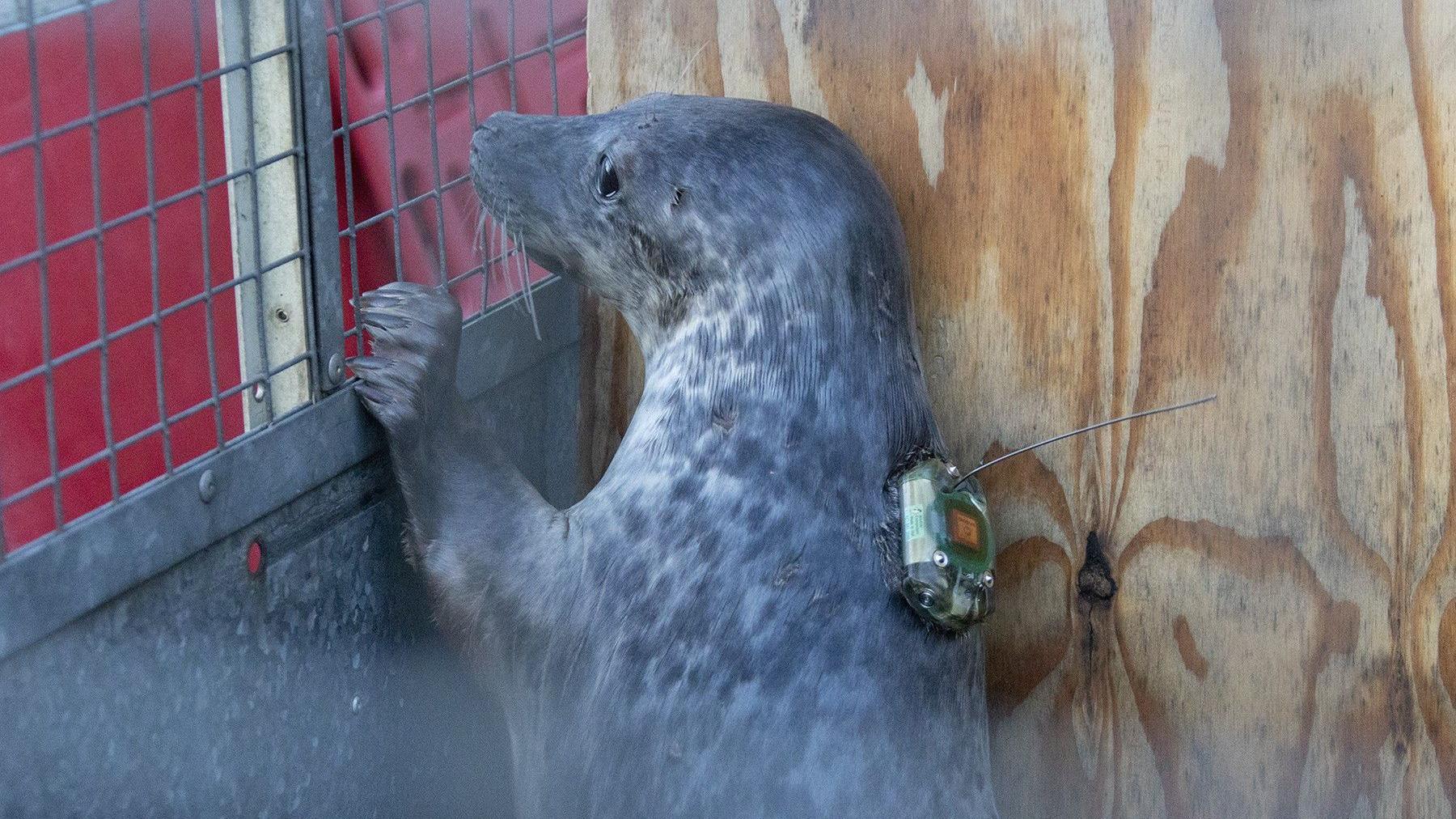
One of the seals was tracked swimming up the River Somme in France
Whirligig, a pup rescued from Weymouth, headed straight back to his local waters after being released.
He was earlier spotted lounging on the pontoons of Brixham Harbour in the spring.
Dung Beetle, a pup released in south Cornwall, headed straight for the southern coast of Ireland.
Anne Van Domberg, senior animal care specialist and research coordinator at the Cornish Seal Sanctuary, said: "For the first time, we're seeing where these pups go, how quickly they settle, and where they find feeding grounds.
"The early data gives us valuable insight into the success of rehabilitation and the behaviour of young seals post-release."
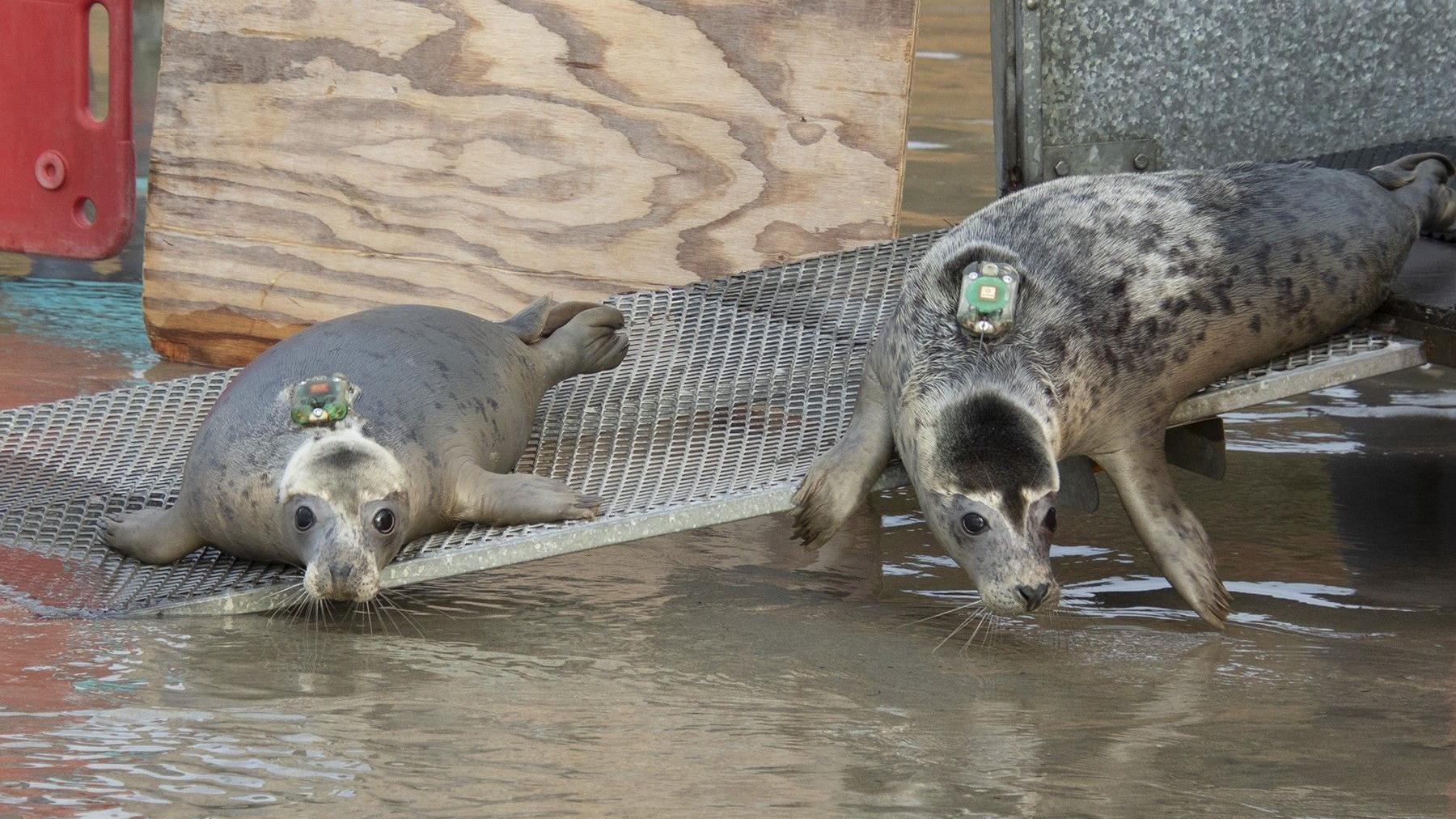
Anne Van Domberg, from the Cornish Seal Sanctuary, said it was heartwarming to see how well the pups were doing
The sanctuary said the project was made possible thanks to guests and supporters, as well as the dedication of the its animal care team, who rehabilitated more than 30 pups over the winter.
Ms Van Domberg said: "We rescue seals with the aim of releasing strong, healthy animals back into the wild.
"But thanks to this technology, we're finally able to follow their stories beyond the shoreline.
"It's amazing to see them thriving, exploring, and in some cases, travelling hundreds of miles.
"It's real proof that our work matters.
"It's so exciting to see where they head off to and heartwarming to know that they are doing so well out there in the wild."
Follow BBC Cornwall on X, external, Facebook, external and Instagram, external. Send your story ideas to spotlight@bbc.co.uk, external.
- Published15 May
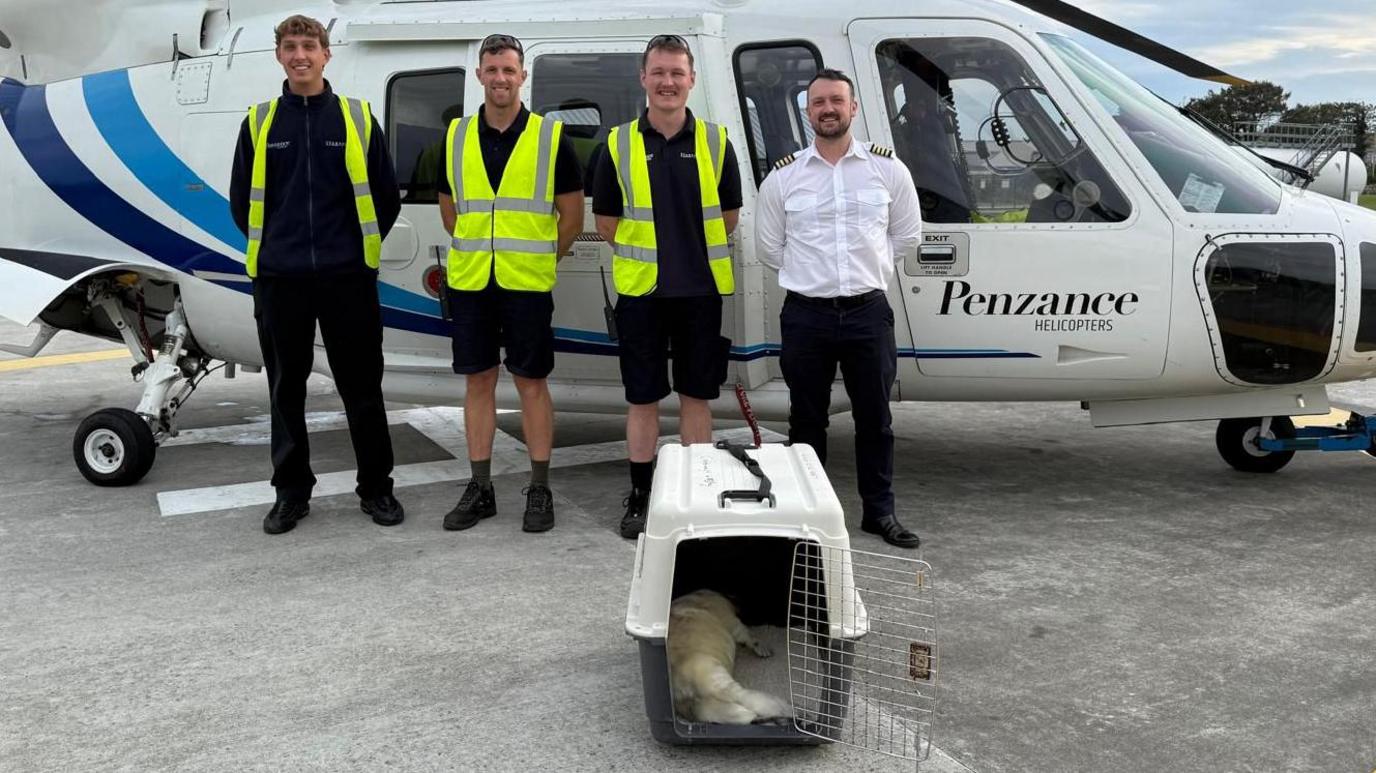
- Published16 October 2024
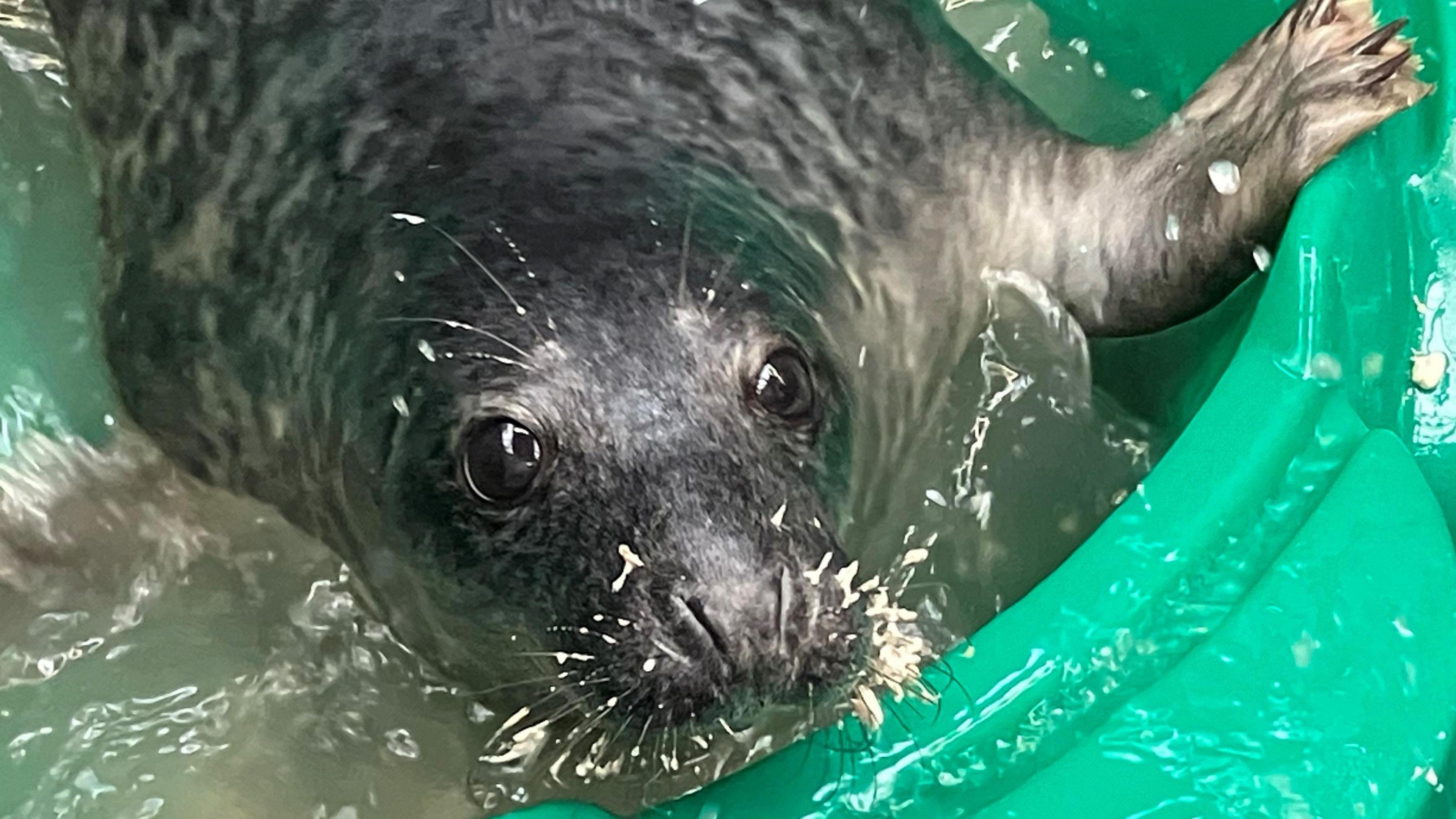
- Published28 August 2024
